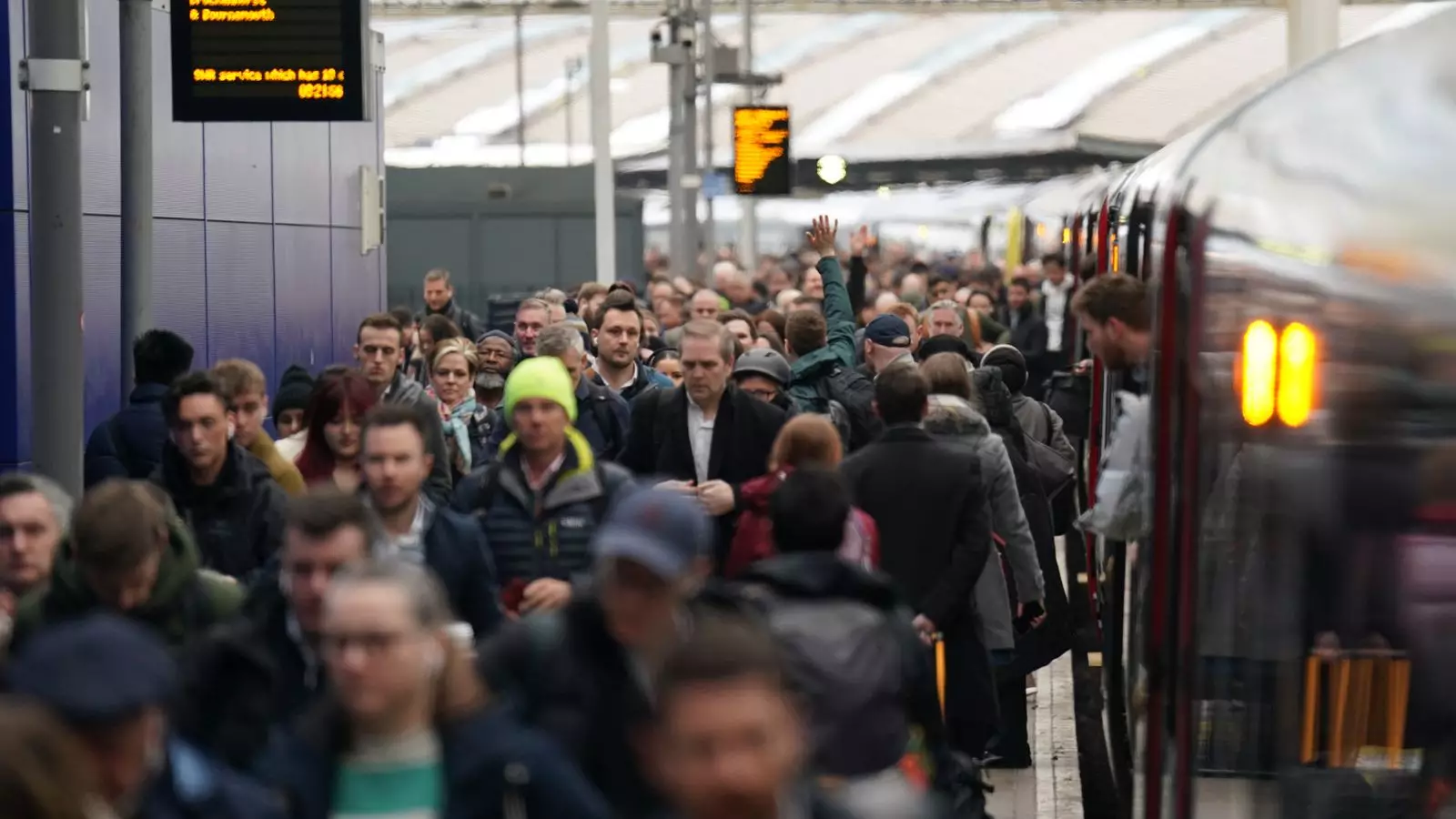The recent increase in train fares in England and Wales has sent shockwaves through the commuting community. As the cost of railway tickets skyrockets by nearly 5%, passengers find themselves struggling to keep up with the financial burden of using public transportation. This comes at a time when the quality of rail services is called into question due to high levels of cancellations and disruptions caused by strikes.
Campaigners are quick to point out that these fare hikes are unjust and punitive towards passengers. Critics argue that passengers are being “punished” for utilizing train services, especially given the poor state of the railway network. The rising costs of train tickets in England and Wales are seen as a deterrent to using public transportation, pushing passengers towards other modes of travel such as driving or flying.
The issue of escalating train fares is expected to become a central theme in the upcoming general election, with Labour promising to bring the railways back into public ownership as contracts expire. The government’s approach to regulating fares, especially in comparison to wages and inflation, has come under intense scrutiny. Labour’s shadow transport secretary has criticized the Tories for significantly increasing fares while diminishing the quality of rail services.
In response to the public outcry, the rail minister defended the government’s decision to raise fares by stating that the increase was “well below inflation”. However, passengers are left questioning the fairness of the distribution of costs between the taxpayer and the fare payer. Despite the government’s claim of providing substantial funding to train operators, passengers are left wondering if the increased fares align with the quality of services being offered.
As train fares continue to rise, there are concerns about the impact on the environment and the economy. Campaigners argue that as train travel becomes more expensive, passengers may opt for driving or flying, leading to increased emissions and congestion on the roads. This not only affects personal finances but also has broader implications for the environment and the overall economy.
The current state of train travel in England and Wales paints a grim picture for passengers. With rising fares, declining services, and ongoing disruptions, commuters are left feeling frustrated and dissatisfied with the state of the railway network. It remains to be seen how the government will address these pressing issues and whether passengers will continue to bear the brunt of the financial burden associated with using public transportation.


Leave a Reply